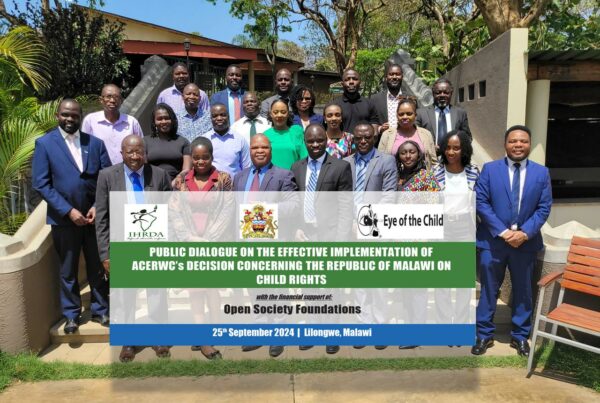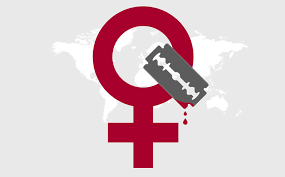General explanation
The African Committee of Experts on the Rights and Welfare of the Child (ACERWC) is the first and only child rights treaty body in the world with the competence to receive complaints against States. It was established by Article 32 of the African Charter on the Rights and Welfare of the Child (ACRWC). Its first members were elected in July 2001 after the coming into force of the ACRWC on 29th November 1999.
The Committee is composed of eleven members “of high moral standing, integrity, impartiality and competence in matters of the rights and welfare of the child” (ACRWC Article 33.1) who are tasked with the duty of monitoring the implementation processes of the ACRWC on the African continent. They serve in their personal capacity.
These members are elected by the Assembly of Heads of State and Government from a list of persons nominated by the State Parties to the ACRWC.
The ACERWC came into existence to complement the efforts of the already existing human rights mechanisms such as the UN Committee on the Rights of the Child, the African Commission and the African Court.
The ACERWC is based in Addis Ababa, Ethiopia, at the African Union (AU) Headquarters.
Mandate
The ACERWC is mandated to monitor and report on the fulfillment of child rights in Africa and it derives its mandate from Articles 32 to 46 of the ACRWC.
Jurisdiction
ACERWC have both subject matter and territorial jurisdiction on communication filed before it by either States that have not ratified the ACRWC against a state that has ratified the ACRWC, victims or any other interested party once it could be proven that it is in the best interest of the child.
Sessions and State Reporting
The Committee convenes twice a year for three days. Usually, these Sessions are held in Addis Ababa, Ethiopia and are open to the public, Non – governmental and Civil Society Organisations (NGOs and CSOs)
The State Parties to the ACRWC are supposed to submit an initial report within two years of ratification of the Children’s Charter and every three years after that. NGOs and CSOs also work with the ACERWC to encourage children’s participation protection and promotion of the rights of children in Africa.
How to access the ACERWC
The ACERWC can receive and consider complaints from individuals against State Party to the Charter and express its views as to the presence or absence of a violation or violations.
It is the only treaty body dealing with the rights of the child that has a complaints procedure that allows even States that are not a party to its Children’s Charter to bring communications to its hearing on behalf of a child that is from a state that has ratified the Children’s Charter, ones the complaint can prove that it is in the best interest of the child. Furthermore, the ACERWC is the only treaty body in Africa that defines a communication, stating that:
“Under Article 44 of the African Charter of the Rights and Welfare of the Child, any correspondence or any complaint from a State, individual or NGO denouncing acts that are prejudicial to the right or rights of the child shall be considered as communication.”
According to Article 45 of the Charter, the Committee is required to submit a report on its activities and on any communication received by the Committee under article 44 of the Charter to each ordinary session of the Assembly of Heads of State and Government every two years,.
Like the African Commission on Human and Peoples’ Rights, the Committee’s jurisdiction is compulsory and automatic for those States that have ratified its founding treaty, the ACRWC.
How IHRDA engages with the African Committee of Experts on the Rights and Welfare of the Child
In 2009, IHRDA and Open Society Justice Initiative (OSJI) filed a communication before the African Committee of Experts on the Rights and Welfare of the Child (ACERWC). The communication was filed on behalf of children of Nubian descent in Kenya whose Kenyan nationality was denied at birth.
This was the second communication considered by the ACERWC and was the first to reach the merits stage.
In it’s first ever decision, 002/Com/002/09 IHRDA and OSJI (on behalf of children of Nubian descent in Kenya) v Kenya, the Committee found Kenya to have violated the rights of Nubian children to non-discrimination, nationality and protection against Statelessness.




